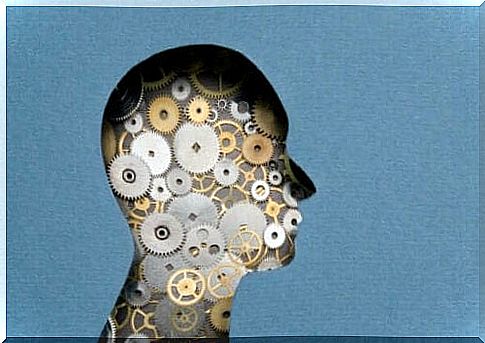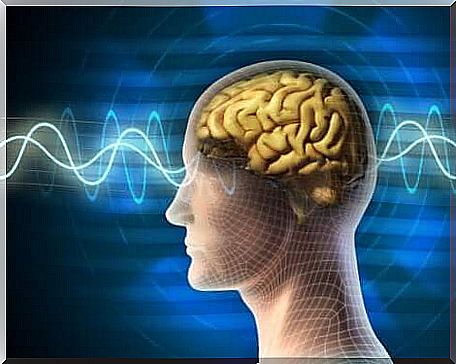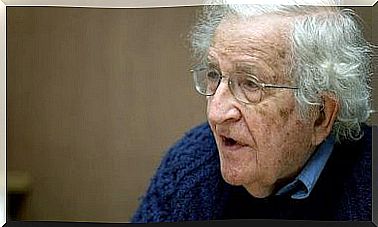Forensic Neuropsychology: Definition, Purpose And Application

Have you ever thought about the role of a neuropsychologist in a lawsuit? Neuropsychology studies the relationship between the brain and cognitive, behavioral, and emotional functions. All this helps us to better understand diseases and daily problems. Within this discipline, people specialize in specific areas. One of them is forensic neuropsychology.
This discipline had its beginnings in the 80s, thanks to its applicability in litigation. It is interesting to learn about what forensic neuropsychology is and how it is used in different contexts. It is also helpful to know when it is necessary to seek out a specialist.

The definition of forensic neuropsychology
Historically, psychologists began serving as witnesses in lawsuits in 1960, thanks to an iconic case called Jenkins v. United States . The DC Court of Appeals realized that it could be helpful to get experts’ opinions on mental illness.
That said, forensic neuropsychology was first seen in the 1980s. This was due to a number of factors, such as:
- An increase in quantitative studies on the relationship between behavior and the brain.
- The interpretive strategies used to deduce the presence, type, and localization of neurological pathology.
- Determining the presence of a disability.
- A description of the behavioral and cognitive characteristics of all neurological diseases.
- The implication of harm to psychosocial function.
- Determining a forecast.
- Decisions on the most appropriate interventions.
What is the goal of forensic neuropsychology?
As we explained above, forensic neuropsychology uses models, methods, instrumentation, and knowledge of clinical neuropsychology in context.
It primarily takes ideas and roles from the field of forensic medicine thanks to the problems and situations it deals with. In other words, they are not trying to determine whether a person has a cognitive problem, but more how these difficulties affect the legal case they are facing.
Experts have determined that the most important role of a forensic neuropsychologist in criminal and civil proceedings is the following:
- To determine a person’s disability.
- Find out how this disability affects their daily lives.
- Provide expert knowledge of what prognosis this disability may lead to.
- Establish a connection between the trial and the disabled person.
Therefore, the goal is to make a sensitive and reliable identification of disorders starting with a description and establishing a relationship with the central nervous system. Similarly, a forensic neuropsychologist can make recommendations that involve evaluation and treatment.
Neuropsychological reports: Is there a difference between the clinical and forensic context?
A neuropsychological report is written after the evaluation. In it, the experts summarize the result of their evaluation. However, it is important to remember that different specialties have different goals and means. Subsequently, we will talk about what they have in common and how they differ from each other.
What they have in common:
- Clinical history. This is a report on the person’s medical history and social development.
- The specification of the damage. A description of where the damage is and what the cause is.
- Changes. These are the results of the evaluation related to the difficulties that a person may have on a cognitive, social and emotional level. It also explains the seriousness of the injury.
- Prognosis and rehabilitation. This part of the report talks about the potential long-term effects of the injury. They also make recommendations regarding care and rehabilitation.
Secondly, the report should include the level of the person’s disability with regard to the activities we mentioned above. They must explicitly show the problems that the person may have at work or why they cannot work at all.
Finally, the report must determine whether the effects of the injury are chronic or whether it may get better or worse in the future. This is especially important if it affects the type of compensation that the person will be able to be awarded in court.

Application of forensic neuropsychology
There are two broad categories in which forensic neuropsychology is used. It can have a significant impact on the outcome of a lawsuit.
Civil and labor law
- Civilian disability or prohibition. In this case, forensic neuropsychology provides information on how the injury affects the person, as well as the functional consequences. It indicates whether a person has a disability or not.
- Evaluation of disability, consequences and injuries. This is where the forensic neuropsychological report is most important. It evaluates the cognitive and emotional side effects that are caused by brain damage. The reason for this evaluation may be legal in nature, as the report determines whether the person will receive compensation or possibly must be retired early.
- Determine work ability. Here, the forensic neuropsychologist determines the long-term effects of brain injury. They also explain the effect the injury will have on the person’s ability to work.
Criminal law
Criminal law is another area where neuropsychologists play an important role. Especially when a person involved in a case has pathologies related to brain injury.
They also identify unusual symptoms that are not caused by a neurological pathology. Among these are: Simulations or the increase in cognitive impairment caused by mental disorders. Forensic neuropsychologists often work in the following contexts:
- Determining a person’s mental suitability to appear in court. Here, the neuropsychologist helps to objectively determine the presence and degree of cognitive problems. They also indicate whether they could interfere with the conduct of legal proceedings.
- Criminal liability. In this case, the role of the neuropsychologist is to provide information that either confirms or disproves the presence of cognitive difficulties. All of this has to do with whether or not the person understands the criminality of their actions. They also determine whether the person can be held responsible for the criminal act for which they are accused.
- Evaluation of victims. Here, the evaluation focuses on the potential repercussions that the victim may suffer due to the criminal act available.
In conclusion, it is important to understand that forensic neuropsychology, despite being a relatively new field, has had an important influence in the legal field.









